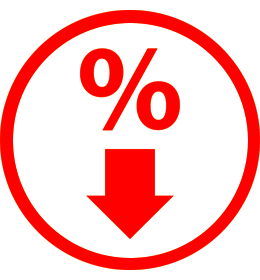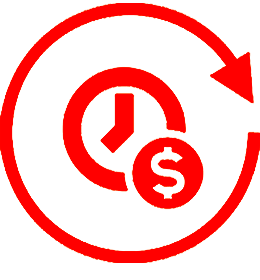When to Refinance?

Refinancing to Secure a Lower Interest Rate
One of the best reasons to refinance is to lower the interest rate on your existing loan. Historically, the rule of thumb was that it was worth the money to refinance if you could reduce your interest rate by at least 1%. Today we offer loans with zero closing cost. If you are not paying closing costs any reduction in rate is a benefit.

Refinance to lower your payment
Refinancing your mortgage at a lower interest rate could mean drastically reducing your payment and saving tens of thousands of dollars in interest. Lowering your mortgage payment could also free up hundreds of dollars per month that could be saved or invested.

Refinancing to Shorten the Loan's Term
When interest rates fall, homeowners often have the opportunity to refinance an existing loan for another loan that, without much change in the monthly payment, has a significantly shorter term.

Refinancing to Tap Equity or Consolidate Debt
Homeowners often access the equity in their homes to cover major expenses, such as the costs of home remodeling or a child's college education. These homeowners may justify such refinancing by pointing out that remodeling adds value to the home or that the interest rate on the mortgage loan is less than the rate on money borrowed from another source.

Refinance to drop my mortgage insurance
If you bought a house and made a down payment of less than 20 percent, the lender required you to buy mortgage insurance. The same goes if you refinanced with less than 20 percent equity That’s a lot of money you’re spending, so let’s break it — exactly how much is PMI? Mortgage insurance premiums are anywhere between 0.3 to 1.5 percent of the original loan amount every year. That means that if you have a $200,000 loan with a PMI rate of 1 percent, it’ll end up costing you $2,000 annually, or about $167 monthly. The exact fee depends on the size of your original down payment and credit rating. If you have 20%+ equity in your home, refinance to a conventional loan and drop your Mortgage Insurance for good.

Refinancing to Convert from an Adjustable-Rate to a Fixed-Rate Mortgages
While ARMs often start out offering lower rates than fixed-rate mortgages, periodic adjustments can result in rate increases that are higher than the rate available through a fixed-rate mortgage. When this occurs, converting to a fixed-rate mortgage results in a lower interest rate and eliminates concern over future interest-rate hikes.

